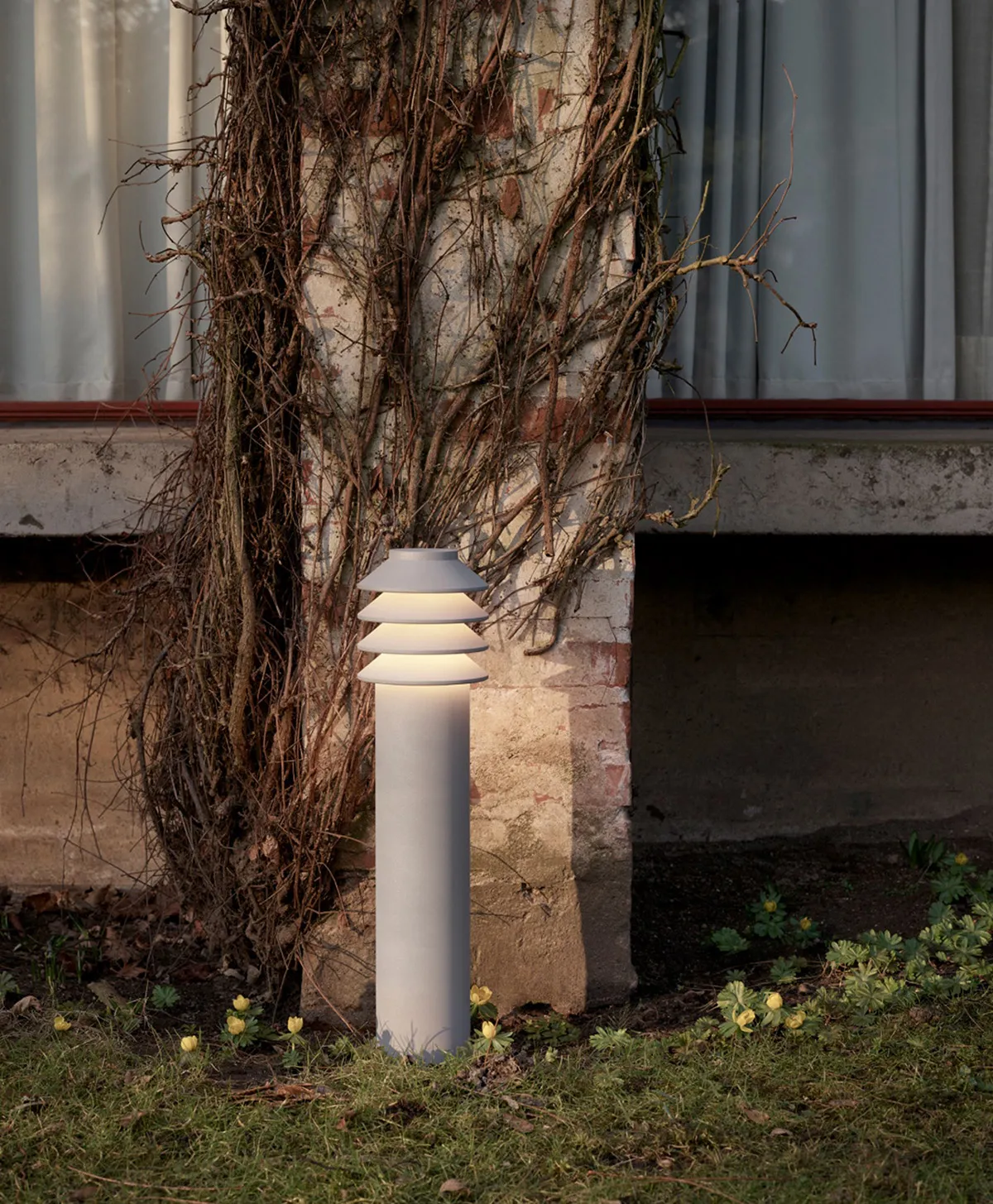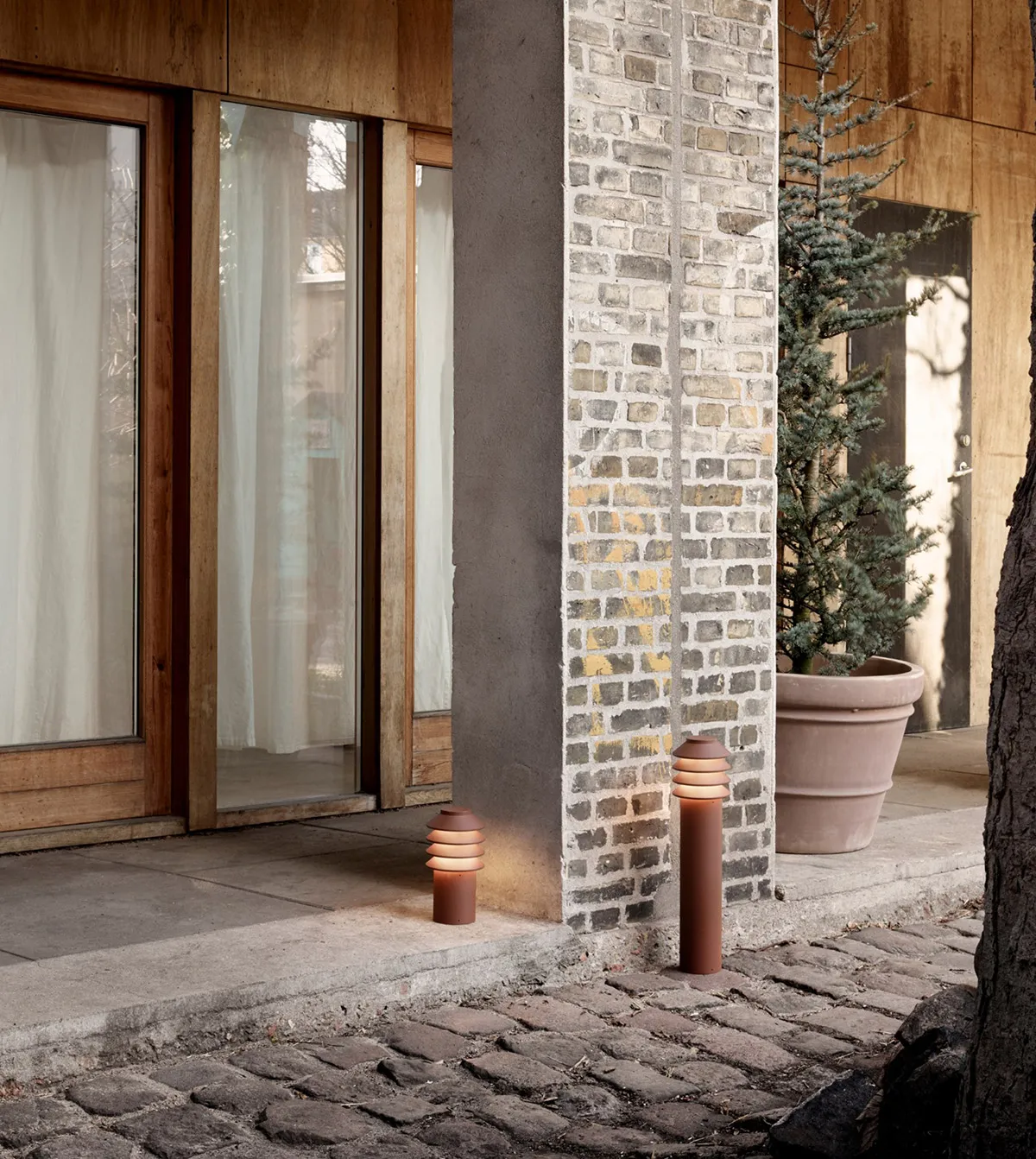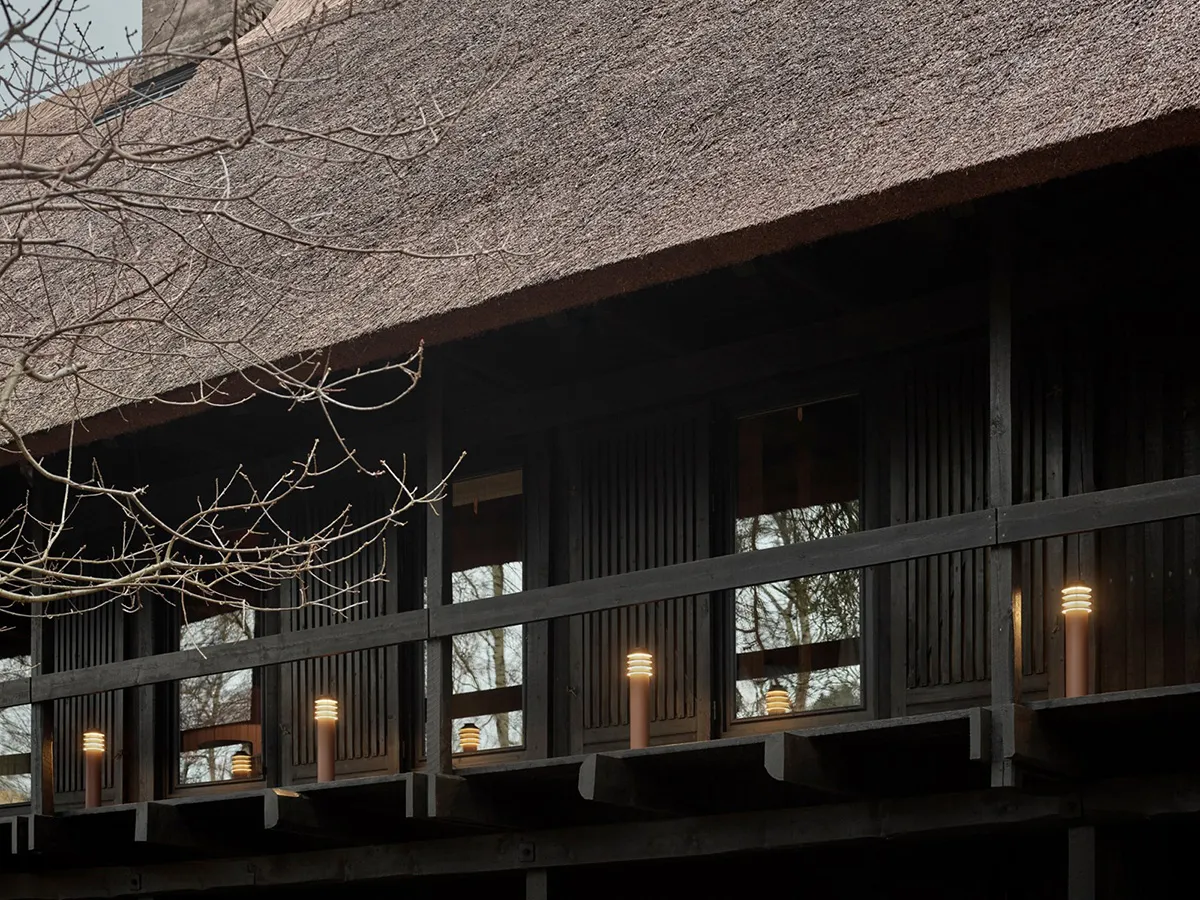Iconic Bysted Bollard
Reinterpreted for the Garden
In 2021, Louis Poulsen will be launching Bysted Garden, a downscaled version of the original Bysted, designed by Danish architect Peter Bysted in 1975. The bollard is characterised by its shadows and the intriguing pattern of light it creates on the ground. Bysted Garden offers easy on-the-spot installation to enhance the quality of light in both commercial and residential outdoor spaces.
Bysted Garden is an addition to the iconic Bysted bollard, which won Peter Bysted second prize in a contest organised by Louis Poulsen for the illumination of neighbourhoods with listed buildings, nearly 50 years ago.
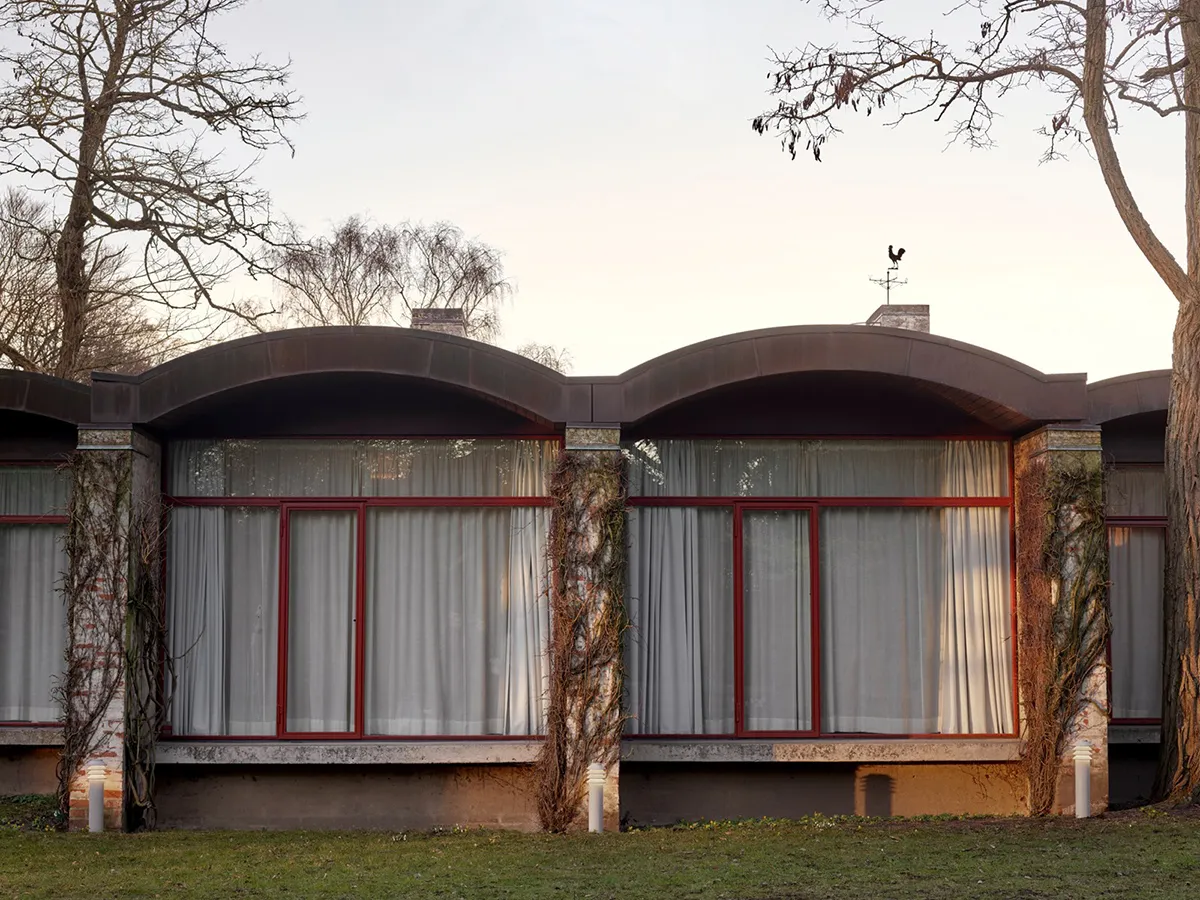
The original Bysted was made in corten steel, which was a revolutionary material at the time and remains a major component of the bollard’s identity. To ease installation and maintenance, the new garden bollard has been developed in durable cast aluminium, which does not patinate over time. Bysted Garden will as standard be available in a corten colour or aluminium finish.
Bysted Garden is almost identical to the Bysted bollard, but in a downscaled version. The round symmetrical design has the same four rings, which reflect the light in a soft downward direction. The rings provide a gentle glow, while their white underside creates light reflection, which produces the distinctive symmetric light pattern on the ground below the bollard to give the garden bollard its distinctive character at night.
Only minor modifications have been made to the original design. The bolts on top of the original fixture have been removed to create a more minimalistic and streamlined Bysted Garden bollard.
Available in two different heights, Bysted Garden allows for a wider range of installations, from entrance areas to planter boxes on roof terraces. With Louis Poulsen’s innovative on-the-spot garden set-up, installation is both easy and quick. Bysted Garden is connected to an adapter, which can run up to four bollards, with a maximum distance of 30 metres to the last bollard.
Bysted Garden truly stands out both individually and in installations with multiple units. It is just as superbly suited to a natural setting as it is to an urban garden environment, where it creates both an attractive and pleasant atmosphere, whether outside in a commercial green space or in a private garden.
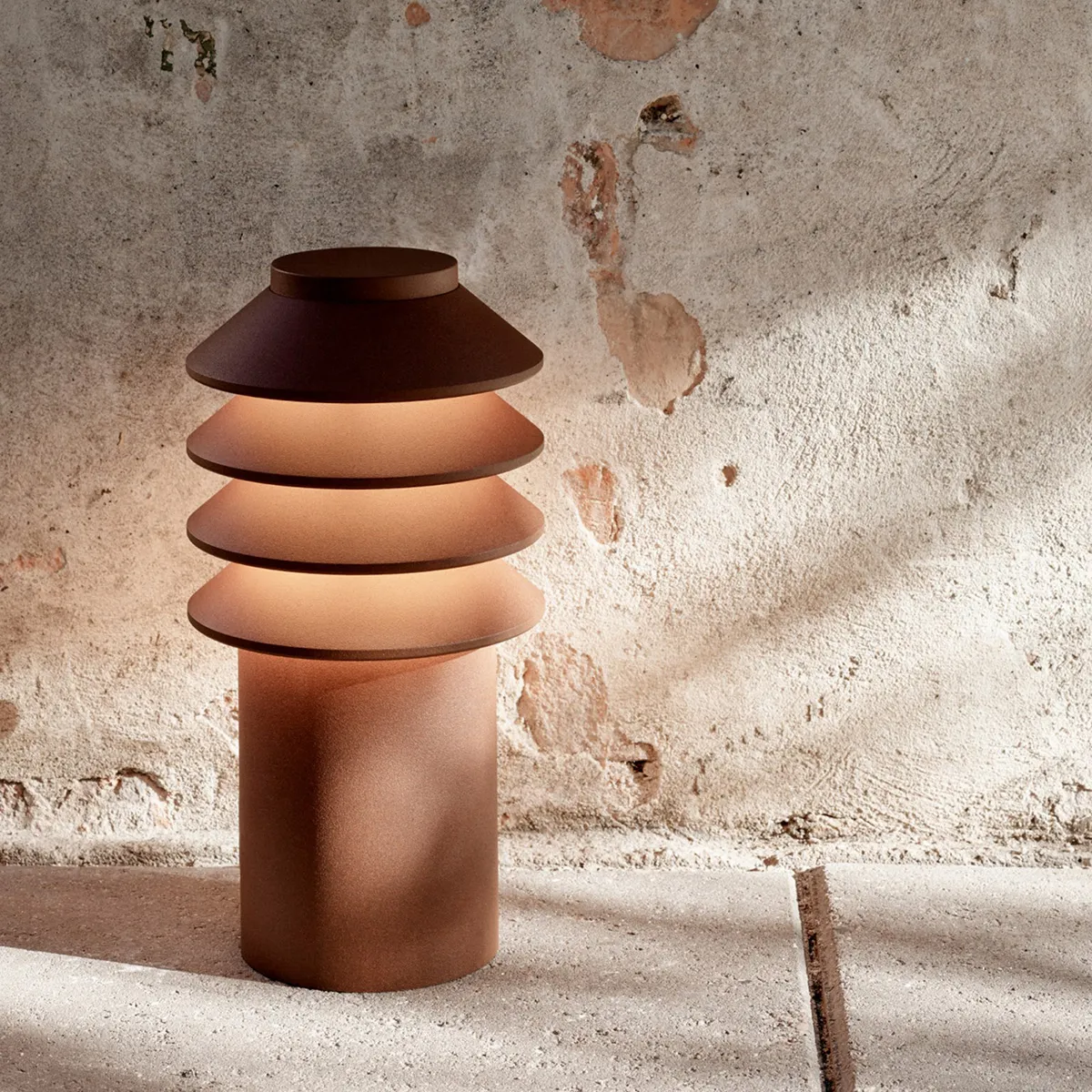
About Peter Bysted
In 1975, Peter Bysted was three years away from graduating as an architect and industrial designer from the Aarhus School of Architecture, when his Bysted bollard came second in a competition organised by Louis Poulsen and his interest in lighting design became apparent.
Later, in 1987, Peter Bysted founded the design company Bysted A/S, which became one of the largest in Denmark. In 2007, after selling the company, Peter Bysted became principal of the Danish Design School, a position he held for two years.
Peter Bysted then founded the integrated design consultancy Icono. His many projects included the custom design of the ‘Rubbie’ rubber bollard for EXPO 2000 in Hanover, Germany, a bollard that was later produced by Louis Poulsen.
